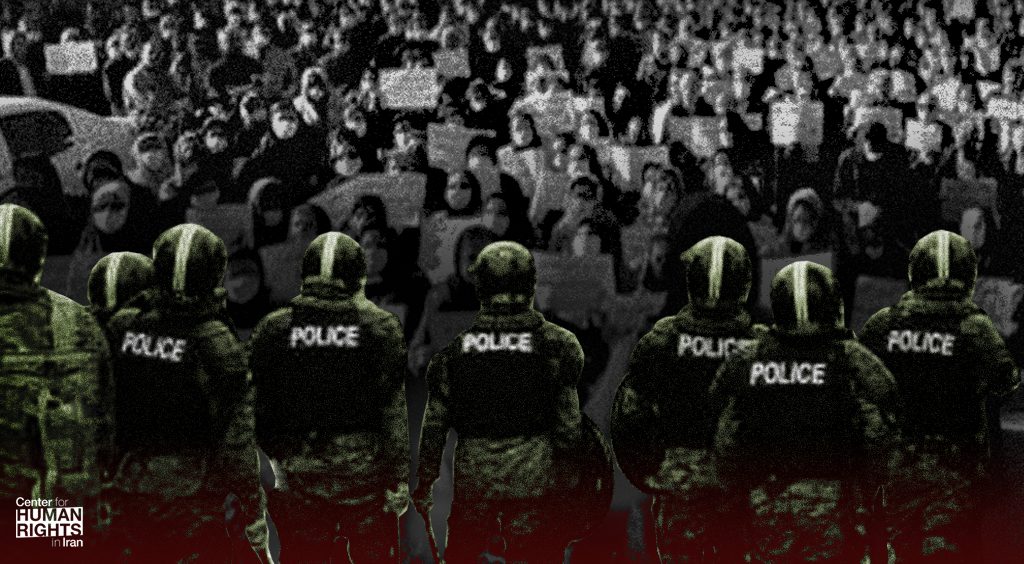Iran’s Violent Crushing of Protests Followed by Growth of Security State
 IRGC Commanders Appointed as Governor-Generals to 10 of Iran’s 31 Provinces
IRGC Commanders Appointed as Governor-Generals to 10 of Iran’s 31 Provinces
“People’s tolerance level has decreased in recent years, given the increasing economic pressures,” said Iran’s deputy interior minister in charge of the Social Services Organization, Taghi Rostamvandi, at a conference focused on tackling social malaise on January 16, 2022.
“If we get a sense that, due to our inabilities, the people are tilting towards thinking that the religious government can’t solve the challenges facing the country and that perhaps another kind of government, such as a secular one, a non-religious state, can deal with the problems, then alarm bells will be ringing for us,” he added.
The senior official’s admission that public discontent is growing in Iran and that the Iranian government fears challenges to its power is deeply concerning given the state’s pattern of crushing dissent and protests through violent force.
State security forces have routinely and violently repressed spontaneous protests in Iran throughout the years, including nationwide demonstrations that sprouted in December 2017, November 2019 and November 2021.
Meanwhile, in the past year and especially in recent months, protests among various layers of society have also been increasing in number and size including among teachers, retirees, farmers, and workers.
Deadly state crackdowns occurred both during Ebrahim Raisi’s term as president (August 2021 to present), as well as when he was judiciary chief (March 2019 to July 2021).
Since Raisi took office, an unprecedented number of military and security officials have been appointed to key positions including provincial governorships to play key roles in coordinating crowd-control activities by police special forces, the Basij militia and the Islamic Revolutionary Guard Corps (IRGC).
Interior Minister Ahmad Vahidi, a senior IRGC general himself, has handpicked IRGC commanders to act as governor-generals of 10 of Iran’s 31 provinces, while dispatching security and judiciary officials to head several other provinces, including:
-
- Ali Ahmadzadeh, Kohgiluyeh and Boyerahmad province, formerly IRGC commander in Bushehr’s 2nd naval region and judiciary official in charge of the State Punishments Organization
- Hassan Bahramnia, Ilam province, former deputy Ilam governor in charge of political and security affairs
- Mehdi Dousti, Hormozgan province, former executive in IRGC’s Khatam al-Anbiya construction company
- Javad Ghana’at, South Khorasan province, former deputy governor general of Mazandaran province in charge of political and security affairs
- Alireza Ghasemi Farzad, Hamadan province, former deputy Hamadan governor in charge of political and security affairs
- Mohammad-Reza Hashemi, Semnan province, former deputy governor of Qom province in charge of political and security affairs
- Mahmoud Hosseinipour, Mazandaran province, former deputy prosecutor general
- Gholamali Heydari Soudjani, Chaharmahal and Bakhtiari province, former commander of the IRGC in province, IRGC’s commander in Isfahan province, head of passive defense in the provinces, and deputy commander of the Basij militia
- Ahmad Mohammadizadeh, Bushehr province, formerly IRGC’s 2nd regional naval commander in Bushehr and later deputy IRGC naval commander in charge of coordination
- Yaghoubali Nazari, Razavi Khorasan province, former commander of the IRGC Imam Reza Force
- Zeinolabedin Razavi Khorram, East Azerbaijan province, former commander of IRGC’s Ashoura Force
- Mohammad-Taghi Shahcheraghi, Qom province, former IRGC commander in Qom, Tehran, Semnan and Mazandaran provinces
- Ali-Mohammad Zanganeh, Golestan province, former judiciary director general in charge of crime prevention
- Farhad Zivyar, Lurestan province, former director general in the charge of political security affairs in the presidential office
Read this article in Persian






